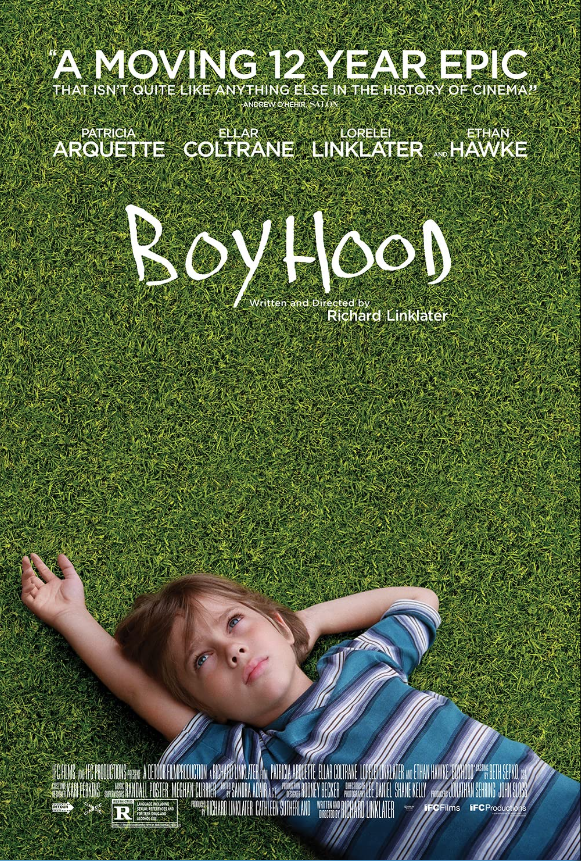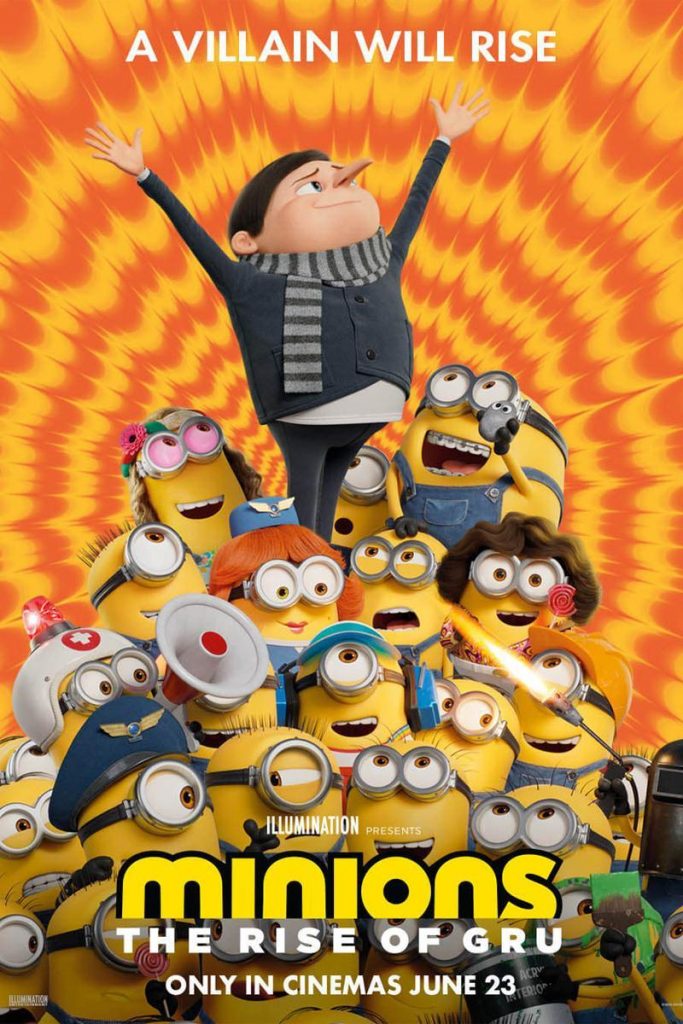In Boyhood, we watch a family go through twelve years. A single mother (Patricia Arquette) raises two children, her sister Samantha (Lorelei Linklater) and her six-year-old brother Mason (Ella Coltrane). The film focuses on Mason and shows him growing up. You know, there are so many coming-of-age films that follow a similar formula – kid has a problem → change → problem solved → grow up.
But “Boyhood” is a departure from this formula. The actors grow up a little bit, but this growth seems invisible to you. Mason, with his strong desire to explore the world, always has his own little ideas. If you flick a drop of water into the air, a good flick will turn you into a wasp. Growing up and falling in love with photography.
My sister, Samantha, was always stubborn. When she was a little girl, her mother wanted to move and she wouldn’t do it, playing hard to get. No, Mom, we’re not moving. No, we’re not moving. When she grew up, her stubbornness didn’t change. You are 18 years old and you can disobey your parents. Two siblings who always disliked each other when they were little. When they get older, it’s still the same. I don’t want to share a room with him. I don’t see any obvious growth in this film, is it because the director is deliberately hiding it? Do you want to see a kid who works hard, beats the doubts of others and finally gets into university? Do you want to see a kid fight his alcoholic stepfather and save his family with love? You call this a coming-of-age film? Actually, from what Sir knows about director Linklater, he’s naturally wary of big ups and downs. He finds that kind of artificial drama, fake.
The aforementioned Love In trilogy is a nattering match from beginning to end, a nattering match that sees not only love, but also gathering and separation, and life. He felt that such a love story was the real deal. Linklater’s inspiration to make Love in originated from an experience. Decades ago, he stopped for a night in a strange city, met a girl and spent the night with her. That night didn’t change anything, it just changed his artistic outlook and he felt from then on that I wanted to make this kind of thing – “this feeling, this thing that flows between us.” That’s what he wanted to restore to love. What he did in Boyhood was the same – he didn’t go down the childish, then understanding route of growing up, which is too narrow. With details, restoring what growing up was supposed to be like. How do you do that? By filming real growth, first and foremost, by portraying a real child. A child is not supposed to be clever, not a genius, not a “kid in charge”. A child is a child. He starts from ignorance – a lot of things he takes for granted as an adult are new to him, so he doesn’t know how to cope. You see, the alcoholic stepfather forcibly shaves the child Mason’s hair and he doesn’t say a word. Hit him with a cup and he doesn’t know how to react and has to look at his mother for help. When he is not around his stepfather, Mason watches a comedy film over and over again. In the comedy, a little girl collects a debt from an adult who is scared to death. – I’m going to slap you to death. – Hey, you know what? You need to relax. – I want my money!!! Mason is afraid to defy the adult and can only draw alternative satisfaction from this absurd scenario of weakness overpowering the powerful.
Powerless and fanciful, that’s how most children start out. What about the growth of a child? As mentioned earlier, when Samantha, as a child, knew she was moving, she played it safe: “No Mummy, we’re not moving, we’re not moving, we’re not moving.” When she grew up, she also heard about the move, and although she had a problem with it, she only asked politely – how will I do my laundry (in the new house)? Sir also mentioned earlier that she and her brother had been enemies since they were young. But at her brother’s graduation party, the elders asked her to speak. Samantha finally squeezed out a “Good Luck” and gave him a thumbs up. Growing up is not a monotonous 60 to 100, it’s not 1m2 to 1m7, it’s not a girl who grows up. The most important thing is that you can’t see it if you don’t pay attention. Growth is a “micro-transformation” in a million children. Sometimes you even need to remember a certain part of your child’s history and compare it to how your child is doing now.
For example, in the eyes of the single mother who is with them day and night, the children have not changed at all. But the father (Ethan Hawke), who doesn’t have custody, only sees them every once in a while, so he can see at a glance how much they have grown. I can’t believe how big they’ve grown. In front of them, Mum is always stern and unforgiving. But every time they see their dad, the three of them are full of surprises.
The two children have discovered: Mum is there every day, but she’s always picking on their flaws. You might as well say goodbye to your obnoxious attitude. And Dad sees them twice a week, and the care and love he gives on those two occasions seems to be more than Mom gives in a month. So treating mum and dad like that makes siblings behave differently. When dad can see, they want to show themselves more desperately. Dad I forgot to show you a picture of me playing basketball. Mum can’t see, so they are more peaceful and unobtrusive. I guess mothers love to complain that they work so much, but their children don’t appreciate it. It’s a feeling we know all too well. Many parents don’t realize that the more obvious your desire for your child to grow, the more your child resents it – Am I bad now?
Or, can’t you see my efforts? If you can’t see it, you might as well not do it. Parents often say that their children don’t know how to behave, but parents don’t really know how to behave when it comes to education. Although they are adults, they have forgotten their own childhood, and then they misunderstand “growing up”. In Sir’s view, growing up is not a result, but a process. In this process, childishness, maturity, understanding and ignorance …… often alternate. You will be angry at your child’s lack of understanding, but you will also be touched by his occasional understanding. You’ll be amazed that a six-year-old knows how to be considerate of his mother, and you’ll be angry that an 18-year-old has a fight and slams the door mercilessly. The mother is also devastated when the child finally goes away and leaves her mother – well …… but that’s what growing up is all about. Growing up, leaving and being independent, that’s the “result” of growing up. This is the “result” of growing up, leaving, and being independent, because this is the moment when the parents are sad to leave, and when the child who leaves opens his arms and embraces his freedom.
At the end of the film, Mason enters university and meets a girl, Nicole. The director has them say these philosophical words. – People always say we have to seize the moment. I think it should be the other way around, that the moment captures us – yes, the moment is never the same, it seems to be fixed in this moment forever, is that difficult to understand? A bit. But as a parent, when you take a moment to think about it, it must make sense.
The growth that Boyhood presents in three hours doesn’t seem long at all now, because that’s 12 long years of parents and children together. In this wonderful confluence of long and short, Sir really reads the matter of growing up. Don’t be moved by cheap stories about growing up. The true meaning of living with children is to let the present moment take hold of us. Because growth is so subtle, you often miss it if you are with your child every day.













